Brain over Brawn: The Smartest Athletes in Sports
Culture

Bill Bradley
The dumb jock stereotype doesn’t apply here, that’s because these athletes can beat you in the classroom and on the fields. From the Ivy Leagues to working in Congress to managing Fortune 500 companies, these athletes can do it all, on and off the field.
Introducing the smartest athletes in sports.
After high school, Bill Bradley turned down 75 scholarship offers to attend Princeton University, an academic powerhouse who, at the time, had a solid basketball player. At Princeton, Bradley was a member of the gold medal-winning 1964 Olympic basketball team and was the 1965 NCAA Player of the Year, the same year the Tigers finished third in the NCAA Tournament.

Focus on Sport/ Getty Images
Bradley graduated in 1965 and moved to England to attend Oxford on a Rhodes Scholarship. Following his two year stint at Oxford, Bradley joined the Air Force Reserves for sixth months prior to joining the New York Knicks, who drafted him with their territorial pick. As a Knick for 10 seasons, Bradley won two NBA Finals. Following his basketball career, Bradley went into politics and served three terms as a Democratic Senator from New Jersey.
Myron Rolle
A standout at Florida State University, Myron Rolle had dreams of becoming an NFL player since his childhood, but those dreams would have to wait. As a senior, Rolle, who graduated with a 3.75 GPA in just two and a half years, was a Rhodes Scholar Candidate. A few hours before a 2008 FSU versus Maryland game, Rolle was awarded the prestigious honor. By accepting it, he decided to postpone his NFL career by one year so he could attend the University of Oxford.

Grant Halverson/ Getty Images
For the 2009-10 academic year, Rolle attended Oxford and earned his M.Sc. in medical anthropology. Following that, he entered the NFL draft and was taken in the sixth round. After a short NFL career, Rolle opted to return to school and enrolled at FSU’s Medical School, graduating in 2017. That same year, Dr. Rolle began his residency in neurosurgery at Harvard.
Brad Ausmus
One of the best baseball players to come out of Connecticut, catcher Brad Ausmus left high school with two goals: make it to the MLB and attend an Ivy League university. Both of those would be realized. After high school, Ausmus signed with the New York Yankees, who permitted the catcher to attend Dartmouth University and play for the club’s minor league teams during breaks from school.

Mitchell Layton/ Getty Images
Because of his minor league status, Ausmus was prohibited from playing for the Dartmouth baseball team, who instead made him an assistant and bullpen catcher. In 1991, Ausmus graduated with an A.B. in government and never received a mark lower than a B. In the MLB, Ausmus won three gold gloves and was a one-time All-Star.
Ross Ohlendorf
Ross Ohlendorf is a Texan through and through, and his family even owns a 300-head cattle farm outside of Austin. However, Ross wasn’t sold, at least initially, on working in the family business. Baseball was his passion, and Ohlendorf took that passion to Princeton University where he majored in operations research and financial engineering.

Jamie Sabau/ Getty Images
As a freshman, Ohlendorf was named the Ivy League Rookie of the Year. Off the mound, Ohlendorf focused on his 140-page senior thesis titled, “Investing in Prospects: A Look at the Financial Successes of Major League Baseball Rule IV Drafts from 1989 to 1993.” After college, Ohlendorf pitched for a variety of MLB teams. In the 2009 offseason, despite his big league salary, Ohlendorf took an unpaid internship with the U.S. Department of Agriculture.
Alan Page
There may not be a more well-rounded individual in NFL history than Alan Page. Page graduated from Notre Dame in 1967 with a B.A. in political science. Following graduation, Minnesota made him the 15th pick in the 1967 draft. Page, a 1988 inductee into the Pro Football Hall of Fame, led an outstanding football career where he was a nine-time Pro Bowler and the first defensive player in history to win the MVP Award.

Focus on Sport/ Getty Images
While playing with the Vikings, Page went onto earn his J.D. from the University of Minnesota Law School in 1978, and one year later he became the first active NFL player to run a marathon. In 1993, Page was elected to the College Football Hall of Fame, the same year he began serving as an associate justice on the Minnesota Supreme Court. He served there until his mandatory retirement in 2015. Three years later, President Donald Trump awarded Page the Presidential Medal of Freedom.
George Parros
One of the most fascinating players during his age, notorious enforcer and mustache-wearer Geroge Parros graduated from Princeton University with a degree in economics and wrote his senior thesis on the West Coast Longshoremen’s labor dispute and how said dispute affected the economy.
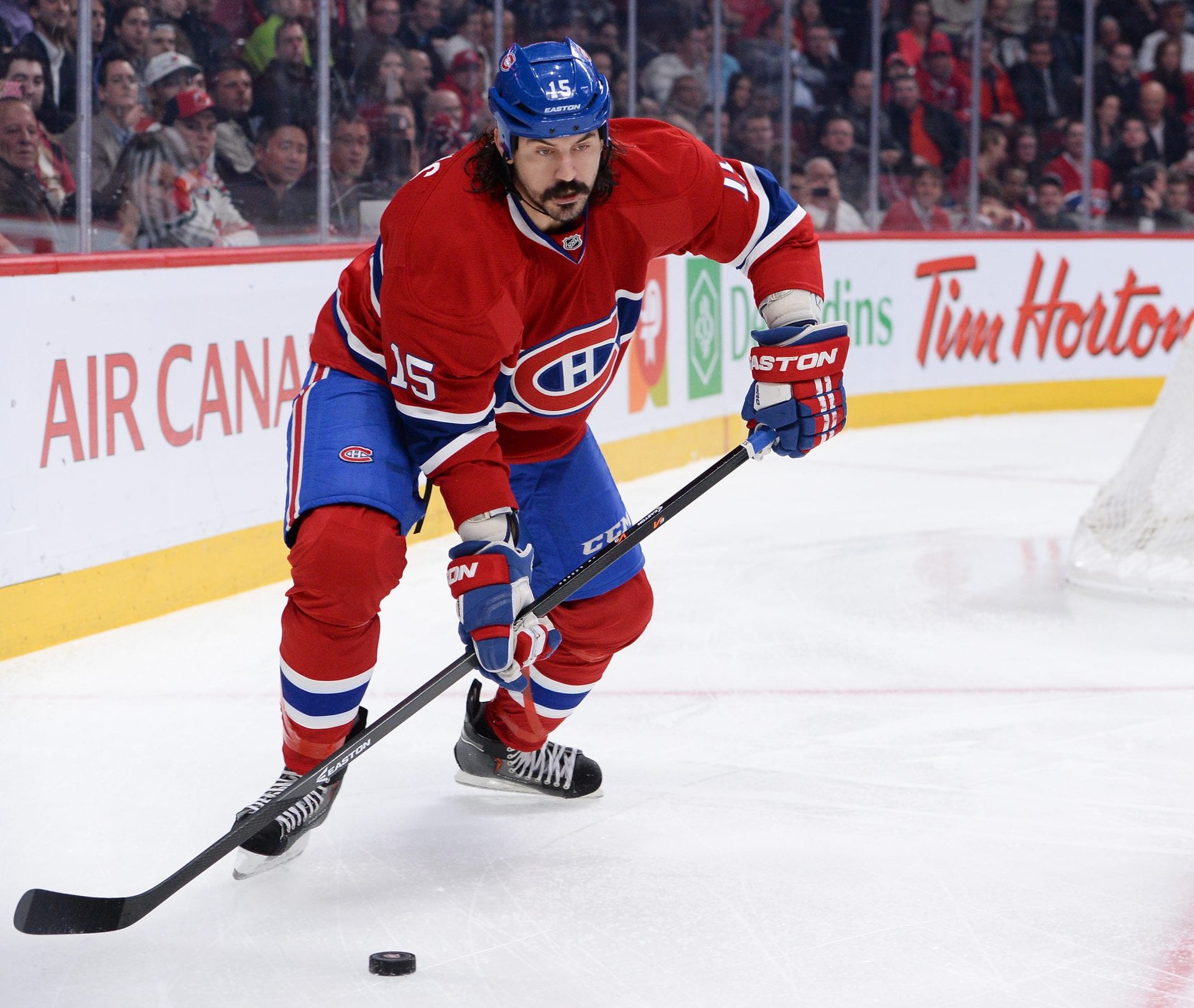
Francois Lacasse/ Getty Images
After four years of burying his clean-shaven face in books (Princeton required their players, like the Yankees, to be well groomed), Parros graduated and moved to the NHL where he was given the freedom to grow his hair and mustache. In the NHL, Parros won one Stanley Cup and was very fond of fighting. After retiring, Parros took a job working in the league’s Department of Player Safety where he currently works as the department head.
Shane Battier
Ok, not everyone that has attended Duke is a genius (Kyrie Irving anyone?), but Shane Battier is a damn smart man. One of the most dominant players in Duke’s illustrious history, Battier won the 2001 National Championship and was the Naismith College Player of the Year.

Ezra Shaw/ Getty Images
That same year he also graduated with a degree in religious studies, but becoming a teacher, professor, or prophet wasn’t in the cards for Shane. The NBA was. The Vancouver Grizzlies drafted Battier sixth overall in the 2001 draft. In total, he won two NBA Finals and was widely considered by his peers to be one of the smartest players on the court.
Matt Birk
Harvard University is known as a school that cultivates some of the world’s greatest thinkers. It is known as a school that producers Pro Bowl NFL players and Super Bowl champions. But Matt Birk was out to buck the trend. Birk graduated Harvard in 1998 with an economics degree.

Diamond Images/ GettyImages
At Harvard, he was an All-Ivy League player and considered by many scouts to be one of the best Harvard prospects ever. In 1998, the Vikings drafted the Minnesota native in the sixth round as a developmental project. That project ultimately turned into a six-time Pro Bowl player, Super Bowl champion, and 2011 Walter Payton Man of the Year Award winner, thanks to his commitment in improving the literacy rate among at-risk youth.
Chris Young
The Padres have been very futile, but this signing was just brilliant. Chris Young is a do-it-all kind of guy. After high school, Young attended Princeton University because the school was willing to let the dual-sport athlete pursue his dream of playing both college baseball and basketball. Playing and excelling at two sports, Young became the Ivy League’s first male two-sport Rookie of the Year, being a unanimous selection for both sports.
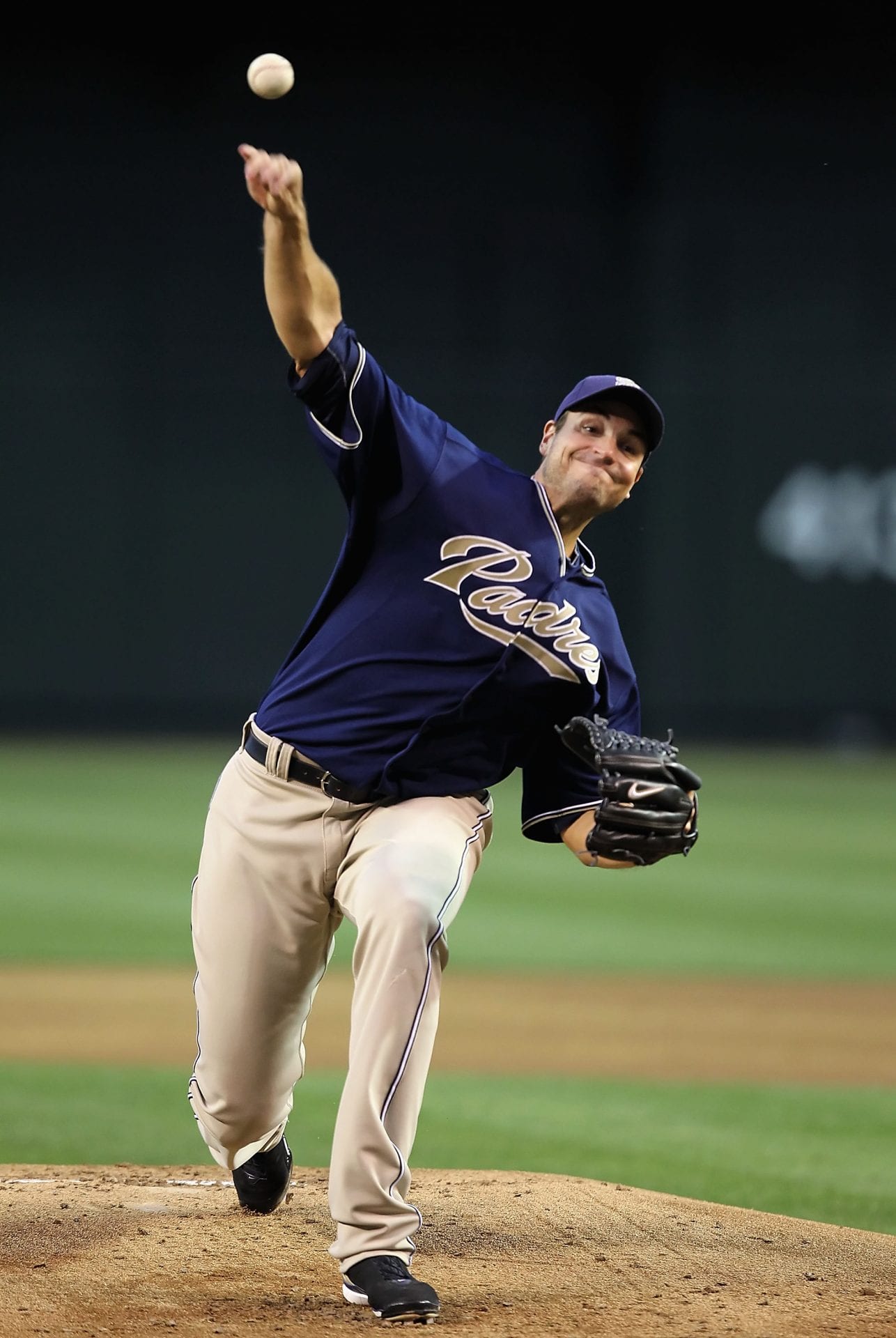
Christian Petersen/ Getty Images
All the while, Young was working on his thesis, titled, “The Impact of Jackie Robinson and the Integration of Baseball on Racial Stereotypes in America: A Quantitative Content Analysis of Stories about Race in the New York Times.” In the Majors, Young is a one-time All-Star and World Series champion.
Craig Breslow
A Yale graduate, Craig Breslow has had one of the most successful major league careers for an Ivy League graduate. Breslow majored in molecular biophysics and biochemistry while being one of the Ivy’s best pitchers. Milwaukee snatched Breslow in the 26th round of the 2002 draft, and in 2005, Breslow made his MLB debut.

Brace Hemmelgarn/Minnesota Twins/Getty Images
To date, Breslow has deferred admission to medical school an astonishing four times so he could continue playing baseball. In 2003, Breslow won his first and only World Series title as a member of the Boston Red Sox. Since retiring, Breslow has taken up work with the Chicago Cubs, working in the front office as the Director of Strategic Initiatives for Baseball Operations.
Dikembe Mutombo
Lauded for his amazing humanitarian work, eight-time All-Star and four-time Defensive Player of the Year Dikembe Mutombo is one of the most genuine, kind, and giving athletes in sports history. Mutombo, who hails from the Congo, arrived in America on a basketball scholarship.

The Sporting News/ Getty Images
At the time, he barely spoke English, but the Georgetown giant was a quick learner, on and off the court. Mutombo, who speaks English, French, Spanish, Portuguese, and multiple Central African languages fluently, was one of Georgetown’s unquestioned leaders. Prior to graduating in 1991 with a bachelor’s in linguistics and diplomacy, Mutombo interned with Congress and the World Bank. Mutombo was enshrined into the Basketball Hall of Fame in 2015.
Pat Haden
Love or hate the USC Trojans all you want, but Pat Haden is, undoubtedly, worth your admiration. Haden’s 1975 year was memorable: he graduated Magna cum laude from USC, was a Rhodes Scholar, and won a national championship as the team’s starting quarterback. With the NFL looming on the horizon, Haden opted to pass on the NFL, at least initially, and attend Oxford.

Focus on Sport/ Getty Images
Post Oxford, where he received his B.A. in economics, Haden went to the NFL, playing for the L.A. Rams from 1976 to 1981. Immediately after retiring from football, Haden, a one-time Pro Bowler, earned his J.D. from Loyal Law School. With three degrees, Haden’s post-football possibilities were endless. From 1982 to 1987, Haden was a practicing attorney, and from 1987 to 2010, Haden was a partner at Riordan, Lewis & Haden, a private equity firm. After that gig, Haden became the athletic director at his alma mater, holding the position until 2016.
Dhani Jones
Dhani Jones may not have the Ivy League prestige that some of the other athletes here have, but the University of Michigan product is no slouch when it comes to his intelligence. Jones was a national champion in college and had a fairly productive NFL career as a linebacker for a number of teams. Off the field, Jones was one of the most fascinating personalities in the league.

Brian Killian/ Getty Images
He would bike to work on a fixed-gear bike and opened up a bowtie shop. Jones also was the host of “Dhani Tackles the Globe,” a television show that aired on the Travel Channel that highlighted Jones traveling the world learning new sports. After that show, Jones hosted “Adventure Capitalist” on CNBC. To read a bit more about Jones and his endeavors, check out this CNBC article.
Heath Shuler
Heath Shuler doesn’t have the prestige of attending an Ivy League university, but that hasn’t stopped the third overall pick from the 1994 NFL Draft from proving himself as one of the smartest athletes. Shuler’s NFL career was rather lackluster. To be blunt, he was a draft bust who never lived up to his potential that made him one of the nation’s best quarterbacks at the University of Tennessee.
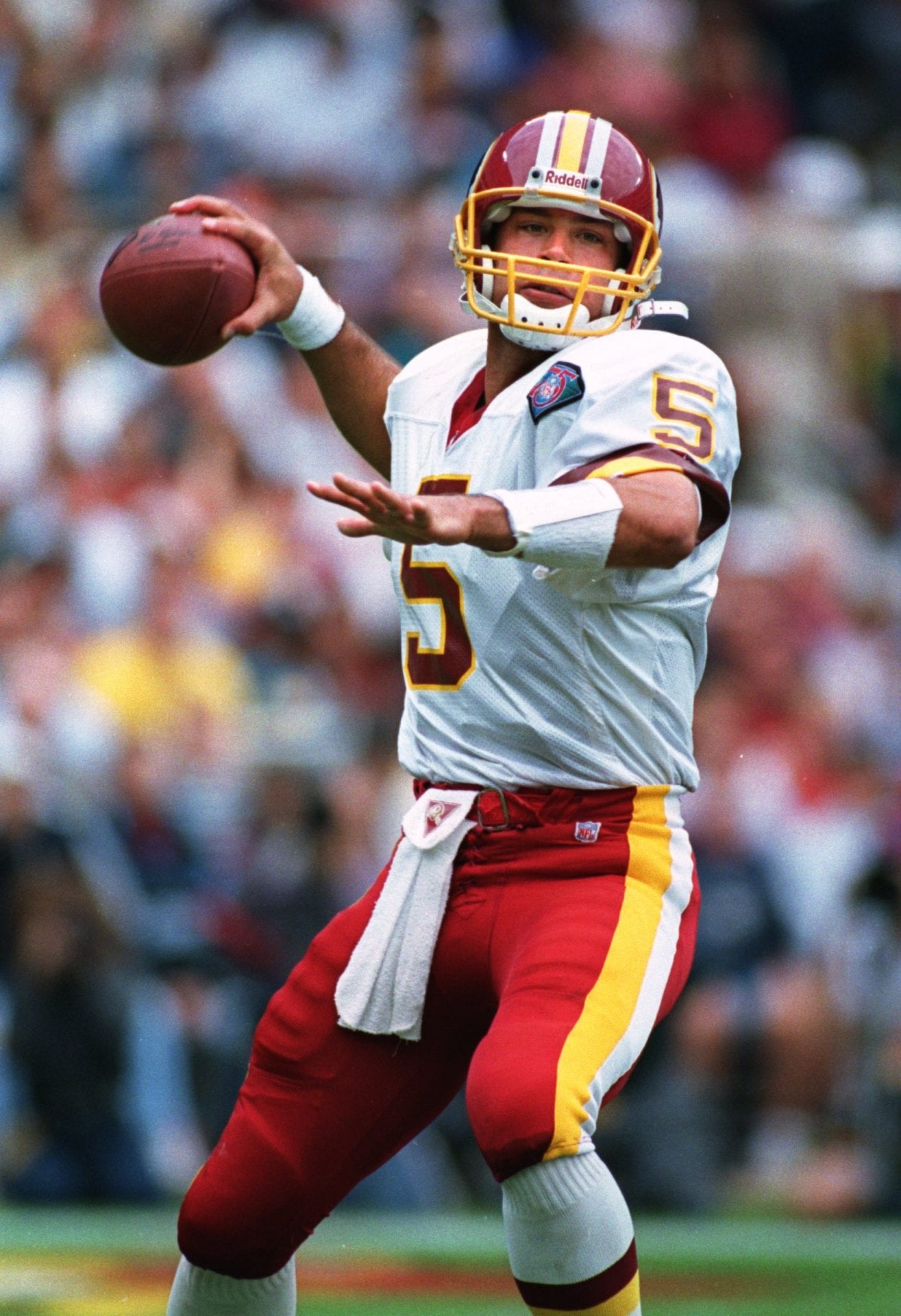
Doug Pensinger/ Getty Images
After his football career unceremoniously ended, Shuler entered the real estate business before dipping his toes in politics. That dip turned out to be a full-fledged dunk; in 2007, Shuler became a Congressman when he won a seat in the House of Representatives for North Carolina’s 11th congressional district. Shuler held his seat from 2007 to 2013. Following politics, Shuler became a lobbyist for Duke Energy.
Douglas Murray
If only Douglas Murray devoted all of his time to hockey. But that wasn’t possible, because Murray and his fertile mind were always on the move. A native of Sweden, Murray attended Cornell University and graduated with a B.S. in hotel administration. On the ice, Murray was, for a few years, one of the most solid defenders in the NHL and threw a mean check.

Jeff Vinnick/ Getty Images
He also represented his home country at the 2010 Winter Olympics. When Murray wasn’t skating, he was creating. With a bunch of college buddies, Murray designed and founded UberTap, a device that, in short, allows people to pour beer out of the keg faster. Since retiring, Murray has worked on a bunch of projects including real estate, business development, and managing the Sharks Alumni Foundation.
Jeremy Lin
Despite being named the Northern California Player of the Year as a senior in high school, Jeremy Lin didn’t garner much attention from colleges. Luckily for Lin, he studied hard and was able to attend Harvard University where he was a three-time all-conference player in the Ivy League.

Jim McIsaac/ Getty Images
After college, where Lin graduated in economics with a 3.1 GPA Lin was, again, overlooked by the NBA and bounced around the G-League until joining the Knicks in the 2011-12 season. That birthed Linsanity, a short-lived, insanely over-hyped period where Jeremy Lin played some pretty solid ball. After that moment in the sun, Lin left for Houston and has been a journeyman ever since.
Ryan Fitzpatrick
Fitzmagic may have died, but the legend of Harvard graduate Ryan Fitzpatrick will live on forever. In 2018, Fitzpatrick shockingly became the first quarterback in NFL history to throw for 400 yards or more in three consecutive games. Prior to becoming an internet sensation in Tampa, Fitzpatrick, was a journeyman, playing for anyone willing to pay for his services.

Michael Reaves/ Getty Images
Prior to the NFL, Fitzpatrick made headlines with his impressive Wonderlic test score, recording a 48 out of 50, the highest ever for a quarterback. He also finished the test in only nine minutes. Going into college, Fitzpatrick scored a 1580 out of 1600 on the SAT.
Chris Nowinski
Chris Nowinski was a standout defensive tackle at Harvard, earning All-Ivy honors. However, the NFL was not in the picture for Chris, who graduated with a B.A. in sociology, so he took up wrestling. Following a stint wrestling in independent circuits, Nowinski moved up to the WWE, becoming the first Harvard alumnus to do so.

Boston Globe/ Getty Images
Like the NFL, professional wrestling is a dangerous sport where head injuries are all too common, and Nowinski was no exception. After suffering multiple concussions, Nowinski retired from the sport and penned “Head Games: Football’s Concussion Crisis,” his magnum opus. From that point, Nowinski became one of the pioneers of uncovering the damages and truths behind concussions, CTE, and other traumatic head injuries associated with football. Today, he is the Co-Founder and President of the Concussion Legacy Foundation.
Tim Green
A two-time Academic All-American at Syracuse University, Tim Green was both a beast on and off the field. In 1986, Green graduated summa cum laude. Months later, the Falcons selected him 17th overall in the 1986 NFL Draft. After eight seasons in the league, Green retired from football and returned to school. In 1994, he graduated from Syracuse’s College of Law.

George Rose/ Getty Images
Following law school, Green became a writer. His book “Football Genius” made The New York Times best-seller list for children’s books. In total, Green has written over 30 books in a variety of genres ranging from children’s fiction to autobiographies. Today, Green practices law in upstate New York and serves on the National Writer’s Project Writing Council.
Ken Dryden
Named one of the greatest goalies ever, Ken Dryden helped establish the Montreal Canadians dynasty of the 1970s. Dryden initially turned down the NHL and opted to attend Cornell University, graduating in 1969 with a B.A. in history. Montreal, two years later, called up Dryden, whose impact was felt instantly. Dryden won the Vezina Trophy, awarded to the leagues top goalie, five times and the Stanley Cup six times.

Bruce Bennett/ Getty Images
In 1973, Dryden, frustrated with contract negotiations, sat out the season out and earned his law degree from McGill University. When the Canadians realized how valuable he was to their team, they immediately re-signed Dryden. After hockey, Dryden became a published author and sports commentator, calling the 1984 Miracle on Ice game alongside Al Michaels. From 2004 to 2011, Dryden was a Member of Parliament (Canada) and served as a cabinet minister from 2004 to 2006. He is one of only two players in Cornell history to have their jersey retired.
Gary Fencik
The 1985 Chicago Bears Super Bowl team will go down as having one of the greatest defenses in history. The star-studded roster had many big names and many unsung heroes, including Gary Fencik. Fencik graduated from Yale University in 1976 with a history degree but wanted to give football a shot. After getting cut by the Dolphins prior to the 1976 season, it appeared Fencik’s NFL career was over.

Jonathan Daniel/ Getty Images
Turns out, it lasted 12 seasons. His hometown Bears took a shot at him and converted the college receiver to safety where he became a two-time Pro Bowler and champion. More impressively, Fencik, in 1981, enrolled in Northwestern’s Kellog School of Management where, four years later, he earned his MBA. Post-football, Fencik took the corporate world by storm, becoming a partner at Adams Street Partners, a $27 billion private equity firm.
Joe Nieuwendyk
Prounicing this name may be an exercise in futility, but there was nothing futile about Joe Nieuwendyk’s game. Nieuwendyk played college hockey at Cornell University before embarking on a 20-year NHL career that saw him win three Stanley Cups with three different teams. He’s also a two-time Olympian with one gold medal to his name.

Mark Konezny/ Getty Images
He is also one of only two players in Cornell hockey history to have their jersey retired. Needless to say, his on-ice resume is stacked, and off the ice, he’s no slouch, either. Following his well-deserved retirement, Nieuwendyk took up management roles with several NHL teams, including the Dallas Stars, his former team.
Grant Hill
Grant Hill has smarts in his DNA. His father, Calvin, graduated from Yale and was a four-time Pro Bowler, while his mother was classmates with Hillary Rodham Clinton at the prestigious Wellesley College. But Hill, a basketball star, opted to attend a school where he could get a great education and potentially win a Division I National Championship: Duke University.
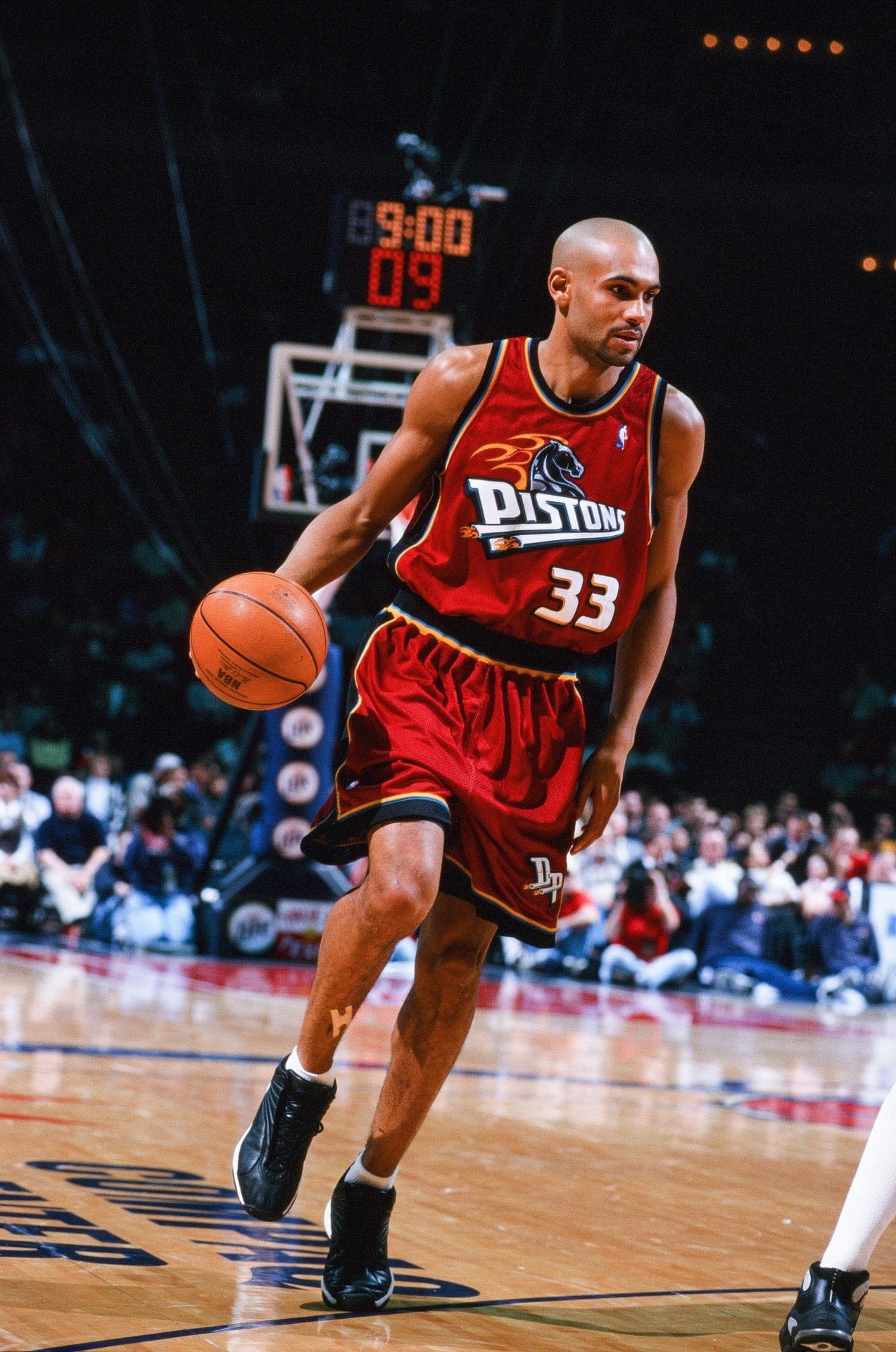
The Sporting News/ Getty Images
At Duke, Hill was a two-time NCAA champion and the 1994 ACC Player of the Year. In 1995, Hill was taken third overall and won the NBA co-Rookie of the Year along with Jason Kidd. Today, Hill, who graduated with a double major in history and political science, is a part owner of the Atlanta Hawks.
Robert Smith
Drafted by Minnesota 21st overall in 1993, former Ohio State standout Robert Smith ran his way to two Pro Bowls and the Vikings’ all-time rushing record before Adrian Peterson broke it many years later. At the age of 28, however, Smith, still in his prime, walked away from football. He had an abundance of other interests and, while his body was still intact, felt it was time to pursue them.

Vincent Laforet/ Getty Images
After retiring, Smith wrote his first book, “The Rest of the Iceberg: An Insider’s View on the World of Sport and Celebrity.” An amateur astronomist, Smith has been featured in programs on PBS, and, as an avid piano player, Smith taught himself how to play while still in the NFL. At Ohio State, Smith majored in history while taking numerous classes in biology, chemistry, and physics.
Cameron Brate
A quick google search of “best universities in the world” yields a myriad of results, all with one conclusion: that Harvard University is the best school in the world. There is a caveat to that statement, though: sports don’t apply. However, Cameron Brate wasn’t dissuaded by Harvard’s relative lack of prestige on the football field.

Julio Aguilar/ Getty Images
Brate graduated from Harvard with a degree in economics and has experience interning at some large hedge funds around Boston. For the time being though, Brate appears content working in the NFL- he’s one of the league’s highest-paid tight ends. In 2018, Tampa signed the rising star to a six-year, $40.8 million contract with $18 million guaranteed.
Brandon Copeland
Much like Harvard, the University of Pennsylvania is one of the world’s most premier institutions of high education, and their Wharton School of Business may be second to none. And while Brandon Copeland, a UPenn graduate with a B.S. in economics, may not yet be an elite NFL linebacker, he’s done very well for himself considering he went undrafted out of college.

Rey Del Rio/ Getty Images
After failing to stick around with a team, the NFL invited Copeland to the Veterans Combine. At the combine’s conclusion, the Jets offered him a contract, one final chance to make a team. When he’s not playing for the Jets, you can find Copeland teaching a financial literacy course at UPenn. And when he’s not in the classroom, you can find Copeland flipping houses.
Jamal Mashburn
Ever since he was a child, Jamal Mashburn wanted to own a business. Sitting on the train commuting to school, Mashburn became fascinated with briefcases, more specifically what was in them. After staring at the University of Kentucky, the Dallas Mavericks selected Mashburn with the fourth pick of the 1993 draft.
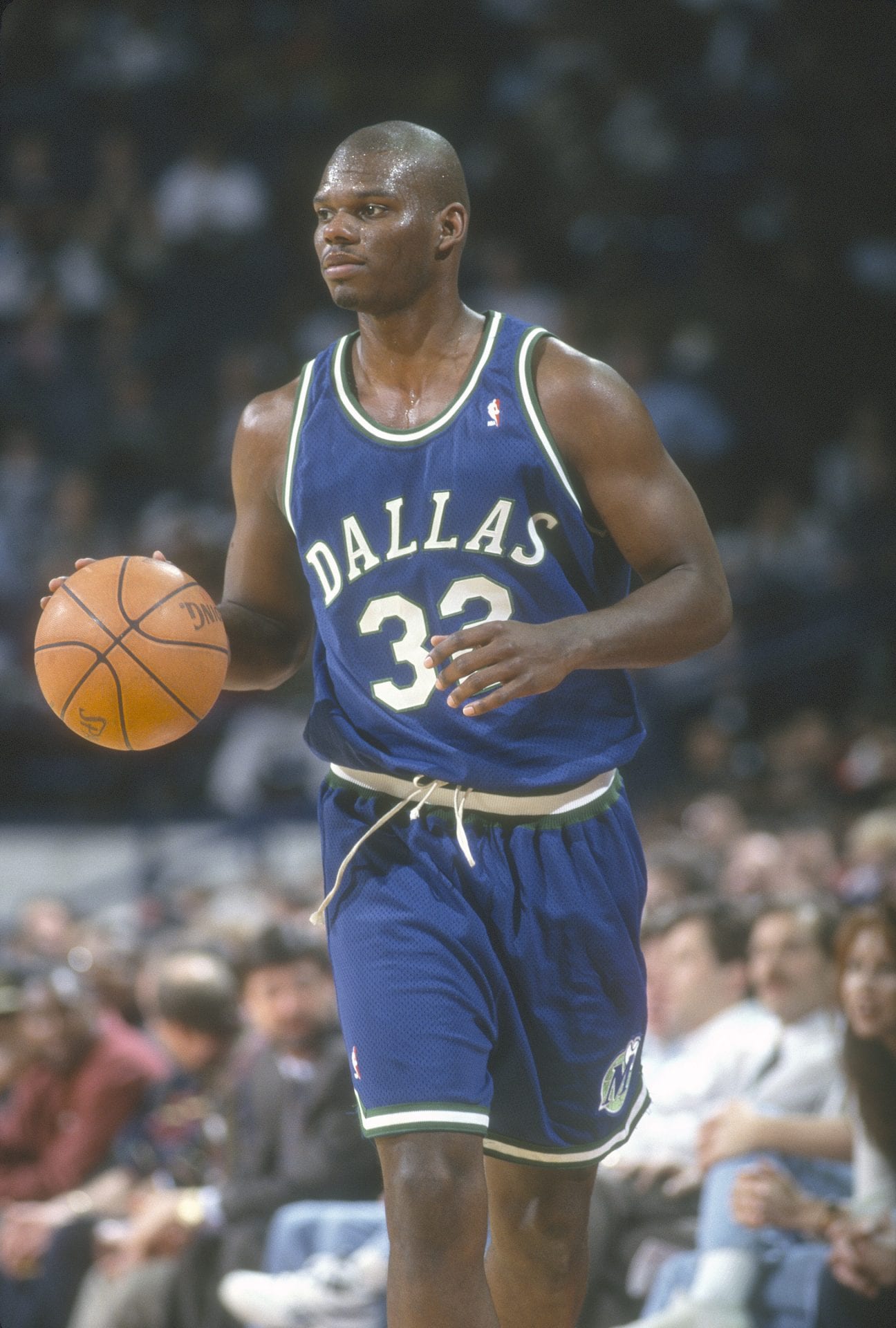
Focus on Sport/ Getty Images
The one-time All-Star had a very successful NBA career that saw him amass over $75 million. After retiring, Mashburn put that money to work, opening up car dealerships and franchising restaurants around Kentucky and Florida. Mashburn now runs more than 90 business including Papa John’s and Outback Steakhouse. More importantly, he solved the briefcase mystery from his childhood.
Alex Smith
From the start, it appeared Alex Smith’s trajectory was lining up for a spot in the NFL. At Helix High School in San Diego, Smith paired up with future Heisman Winner Reggie Bush on a dominating team. All the while, Smith earned college credit by taking classes at San Diego State and passing numerous A.P. tests.

Joe Robbins/ Getty Images
When Smith enrolled at the University of Utah, he was already halfway done with college, literally. Smith earned his Bachelor’s in economics in two and a half years while graduating with a 3.74 GPA. On the field, Smith had a 21-1 record as a starter and went first overall in the 2005 NFL Draft.
Pau Gasol
He’s not the most interesting man in the world; that distinction belongs to this guy, but Pau Gasol is right up in the running for most interesting man in sports. The two-time NBA champ, six-time All-Star, and three-time Olympic medalist hails from Spain.

Jayne Kamin-Oncea/ Getty Images
And it was in Spain where Pau heard that Magic Johnson was HIV positive, sparking his interest in becoming a doctor. And it wasn’t for a lack of interest or passion in medicine that Gasol didn’t become a doctor. His basketball skills were otherworldly, and that became his main focus. Gasol, who is fluent in Spanish, English, French, and Italian, is a fan of opera, classical music, historical novels, and even plays classical music on his keyboard.
Michael Doleac
In 1998, Utah went on an improbable run to the NCAA Championship Game where they eventually lost to Kentucky. Leading that charge was Michael Doleac, a center drafted 12th overall by the Magic in the 1998 NBA Draft. Doleac’s NBA career was somewhat forgettable, but he did manage to win an NBA Finals in 2006 with the Heat.

Brian Bahr/ Getty Images
After retiring, Doleac returned to school to get his Master’s degree in physics. Doleac then found himself a perfect job that combined his love of basketball and physics: teaching high school physics while coaching the boy’s basketball team. To date, Utah has not made it back to the Final Four.
Sid Luckman
Columbia University hasn’t produced an NFL MVP since 1943, the year Sid Luckman took home the sport’s greatest individual award. Luckman had a prolific career at Columbia and finished third in the 1938 Heisman Trophy voting. That outstanding campaign immensely bumped Luckman’s draft stock. In 1939, the Bears made the former Columbia Lion the second overall pick in the draft.

Vic Stein/ Getty Images
Luckman’s NFL career was nothing short of remarkable, even though he was forced to take a three-year hiatus from sports during World War II. Following his football days, Sid Luckman went onto become the president of a Chicago-based manufacturing company.